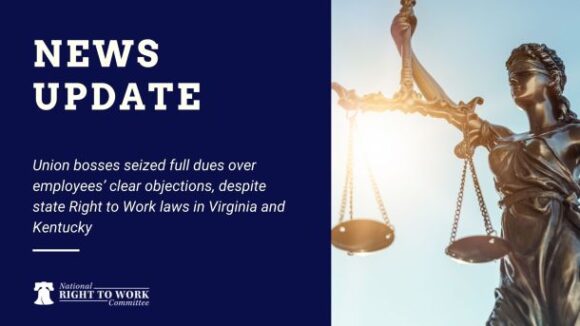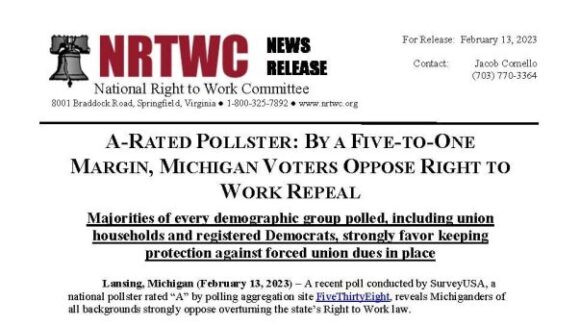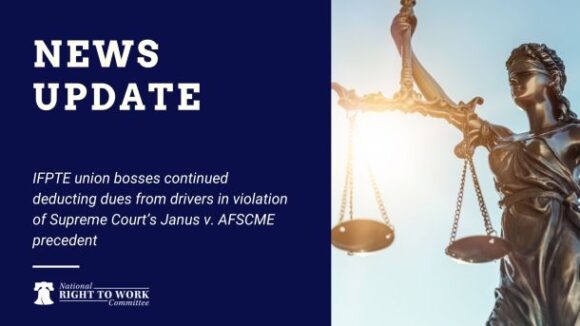Virginia, Kentucky Workers Slam Union Officials with Charges for Illegal Dues Deductions
Union bosses seized full dues over employees’ clear objections, despite state Right to Work laws in Virginia and Kentucky
During his six years as Maryland governor, Big Labor politician Martin O’Malley has repeatedly pushed for passage of and signed into law measures expanding the power of the Free State’s government union officials to force public servants to fork over union dues or fees, or be fired. Just this year, O’Malley rubber-stamped legislation denying counties the ability to protect the Right to Work of K-12 public school employees. Forced union dues are now automatically authorized in K-12 education statewide.
O’Malley and other politicians who favor such union special-interest schemes claim public employees benefit from compulsion. Obviously, employees who don’t want a particular union (or perhaps any union at all) are actually harmed by being forced to support financially their Big Labor “exclusive” bargaining agents. But what about voluntary union members? Do they benefit?
Maryland-based columnist Marta Mossburg recently looked at recent reports documenting the financial impact of a 2009 Maryland law imposing compulsory unionism on state government employees. In the commentary linked below, she uses this information to answer the ancient question, “Cui bono?” — e.g., “Who benefits?” Mossburg finds that state employees, whether they are union members are not, have not gotten anything out of the four-year-old forced-dues law. Nor have taxpayers. Nor have other citizens who depend on public services. But union bosses have reaped a huge windfall from the cynically mislabeled “fair share act”:
Maryland’s Fair Share Act is to fair what Liberace is to understated.
The 2009 law mandating that all state employees pay union dues regardless of whether they belong to the union is, however, a huge boon to the bottom line of the American Federation of State, County and Municipal Employees, according to IRS records.
Revenue at the largest state employee union rose from $5.1 million to $8.8 million in a year, according to its Form 990 returns from 2010 and 2011 at Guidestar.org. (AFSCME does not make its tax forms available on its website, http://www.afscmemd.org/.) The union did not start collecting dues from nonmembers under its jurisdiction until July 2011.
Contrary to union officials’ statements at the time of the law’s passage that the money would be targeted to improve services for all employees, the tax records show the vast majority of the increase went to hiking union employees’ salaries and toward higher affiliate payments to state and local unions and the national parent organization.
Maryland’s Fair Share Act is misnamed

Union bosses seized full dues over employees’ clear objections, despite state Right to Work laws in Virginia and Kentucky

A recent poll conducted by SurveyUSA, a national pollster rated “A” by polling aggregation site FiveThirtyEight, reveals Michiganders of all backgrounds strongly oppose overturning the state’s Right to Work law.

IFPTE union bosses continued deducting dues from drivers in violation of Supreme Court's Janus v. AFSCME precedent